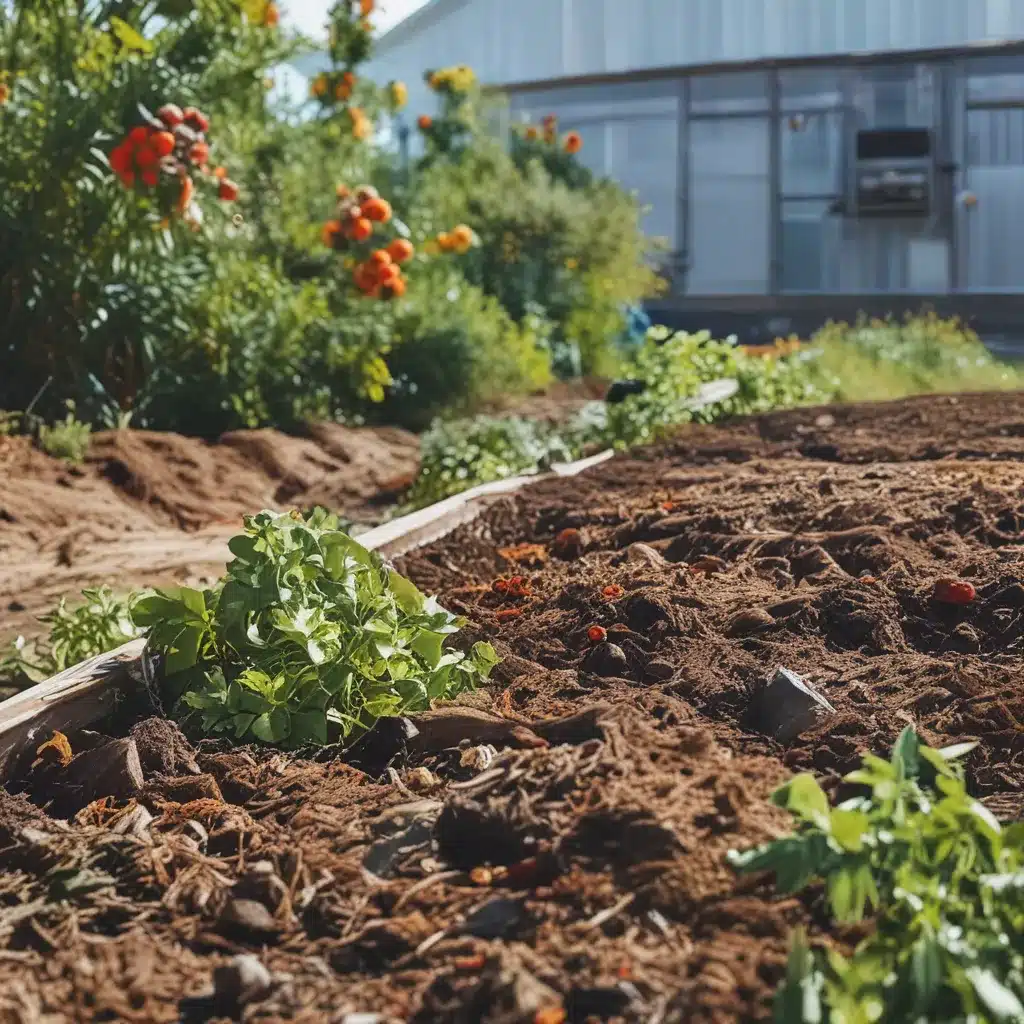
As a devoted member of the Thornapple Community-Supported Agriculture (CSA) service, I’ve witnessed firsthand the incredible strides they’ve made in sustainability. What started as a simple farm-to-table operation has evolved into a true eco-powerhouse, thanks to their innovative composting and waste-to-energy initiatives. Let me take you on a behind-the-scenes journey and share how they’re closing the loop on waste management.
Composting: Turning Trash into Treasure
I’ll never forget the day I visited the Thornapple CSA farm and saw their composting operation in action. It was like stepping into a well-oiled machine, where every scrap of organic material was meticulously transformed into nutrient-rich soil. As I walked through the rows of neatly organized compost piles, I couldn’t help but feel a sense of awe and inspiration.
According to the Canadian Forest Service, composting not only reduces the amount of waste sent to landfills but also helps to create a valuable soil amendment that can be used to improve the health and fertility of agricultural lands. Thornapple CSA has taken this concept to the next level, implementing a state-of-the-art composting system that processes their own food waste, as well as that of local restaurants and households.
The process begins with the collection of food scraps, yard trimmings, and other organic materials from the community. These materials are then carefully layered in large outdoor bins, where they undergo a series of carefully controlled temperature, moisture, and aeration adjustments. Over the course of several weeks, the microorganisms within the compost break down the organic matter, transforming it into a rich, crumbly soil amendment that is then used to nourish the crops on the Thornapple CSA farm.
But the benefits of this composting system extend far beyond the farm’s boundaries. Research has shown that composting can significantly reduce greenhouse gas emissions compared to landfilling or incineration, making it a crucial component of Thornapple CSA’s overall sustainability efforts.
Waste-to-Energy: Powering the Future
As if their composting program wasn’t impressive enough, Thornapple CSA has also embraced the concept of waste-to-energy, taking their sustainability efforts to new heights. Picture this: a large, sleek anaerobic digester sits proudly on the edge of the farm, quietly converting the remaining organic waste into renewable biogas.
According to the City of Grand Rapids’ Fiscal Plan for 2024, anaerobic digestion is a process that uses microorganisms to break down organic matter in the absence of oxygen, producing methane-rich biogas that can be used to generate renewable energy. Thornapple CSA has harnessed this technology to not only manage their own organic waste but also to power their entire operation, including the greenhouses, processing facilities, and even the electric vehicles used for farm deliveries.
As I observed the digester in action, I was amazed by the efficiency of the process. The organic waste, including any remaining food scraps and agricultural byproducts, is fed into the digester, where it undergoes a series of reactions that break it down into biogas. This biogas is then captured and used to fuel generators, providing clean, renewable electricity to power the entire Thornapple CSA facility.
But the benefits of this waste-to-energy system don’t stop there. The nutrient-rich digestate, a byproduct of the anaerobic digestion process, is also used as a high-quality soil amendment, further enhancing the fertility of the Thornapple CSA farmland. It’s a true closed-loop system that maximizes the use of every resource and minimizes waste.
The Thornapple CSA Difference
As I reflect on my experience with Thornapple CSA, I’m struck by the level of dedication and innovation they’ve brought to the world of community-supported agriculture. While many CSAs focus solely on providing fresh, locally-grown produce, Thornapple has taken their mission to the next level, transforming their farm into a hub of sustainability and environmental responsibility.
Their composting and waste-to-energy initiatives are not only reducing their carbon footprint and minimizing waste, but they’re also serving as a model for other farms and communities to follow. By closing the loop on waste management, Thornapple CSA is not only nourishing the land and the people they serve but also contributing to a more sustainable future for us all.
In a world where environmental concerns are at the forefront of our collective consciousness, Thornapple CSA is proving that it’s possible to run a successful, community-driven agricultural operation while prioritizing sustainability and eco-friendly practices. As a member, I can’t help but feel a sense of pride and excitement for the future of this remarkable organization.
So, the next time you visit the Thornapple CSA website (https://thornapplecsa.com), take a moment to explore their innovative composting and waste-to-energy initiatives. You’ll be inspired by their commitment to closing the loop and leaving a lasting, positive impact on the environment. After all, what better way to support your local community and the planet than by becoming a member of this truly remarkable CSA?



